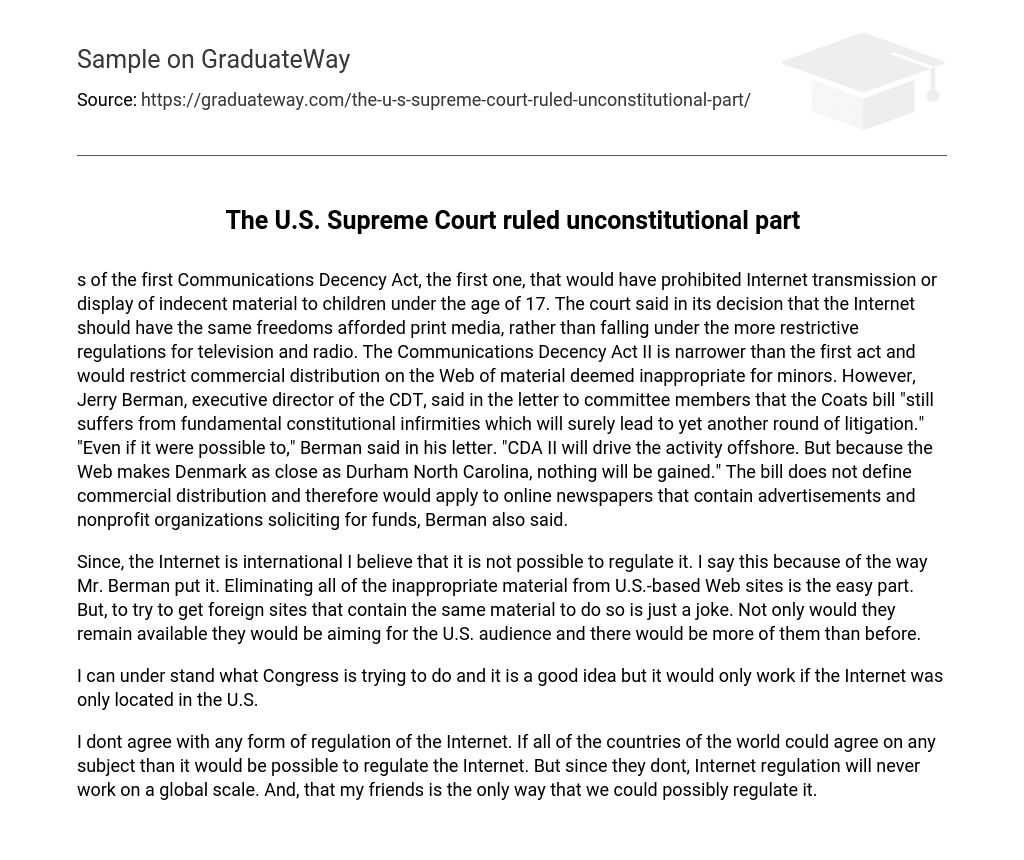The U.S. Supreme Court ruled unconstitutional parts of the first Communications Decency Act, the first one, that would have prohibited Internet transmission or display of indecent material to children under the age of 17. The court said in its decision that the Internet should have the same freedoms afforded print media, rather than falling under the more restrictive regulations for television and radio. The Communications Decency Act II is narrower than the first act and would restrict commercial distribution on the Web of material deemed inappropriate for minors. However, Jerry Berman, executive director of the CDT, said in the letter to committee members that the Coats bill “still suffers from fundamental constitutional infirmities which will surely lead to yet another round of litigation.” “Even if it were possible to,” Berman said in his letter. “CDA II will drive the activity offshore. But because the Web makes Denmark as close as Durham North Carolina, nothing will be gained.” The bill does not define commercial distribution and therefore would apply to online newspapers that contain advertisements and nonprofit organizations soliciting for funds, Berman also said.
Since, the Internet is international I believe that it is not possible to regulate it. I say this because of the way Mr. Berman put it. Eliminating all of the inappropriate material from U.S.-based Web sites is the easy part. But, to try to get foreign sites that contain the same material to do so is just a joke. Not only would they remain available they would be aiming for the U.S. audience and there would be more of them than before.
I can under stand what Congress is trying to do and it is a good idea but it would only work if the Internet was only located in the U.S.
I dont agree with any form of regulation of the Internet. If all of the countries of the world could agree on any subject than it would be possible to regulate the Internet. But since they dont, Internet regulation will never work on a global scale. And, that my friends is the only way that we could possibly regulate it.





